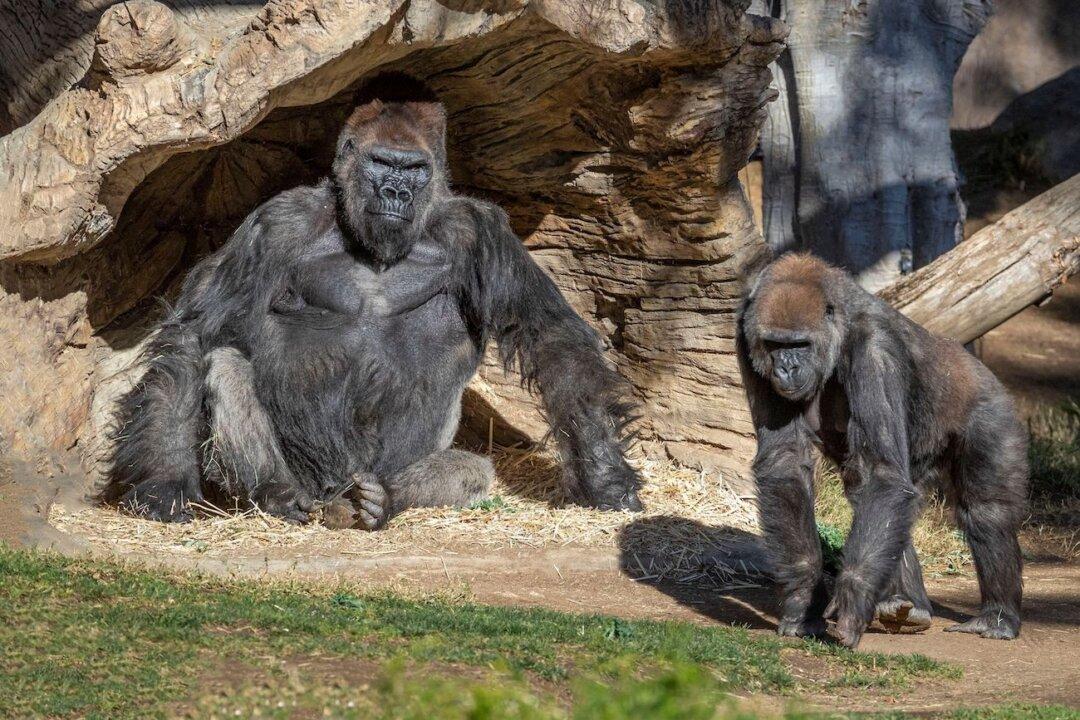Two gorillas at the San Diego Zoo have tested positive for COVID-19, the zoo announced, marking it the first known such cases confirmed in apes.
San Diego Zoo Global announced that two gorillas at its San Diego Zoo Safari Park began coughing on Jan. 6, and that it began the process of testing fecal samples from the gorillas through the California Animal Health and Food Safety Laboratory System (CA HFS).




